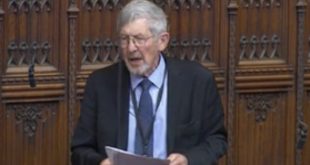 The record + £19m fine imposed on William Hill reveals why UK gambling Plcs have found it hard to accommodate new rules on Social Responsibility and Customer Interaction… A reality previously foretold by David Clifton.
The record + £19m fine imposed on William Hill reveals why UK gambling Plcs have found it hard to accommodate new rules on Social Responsibility and Customer Interaction… A reality previously foretold by David Clifton.
The regulatory settlements pursuant to which William Hill are obliged to pay a record total of £19.2 million for social responsibility and anti-money laundering failings made headline news around the world when they were announced by the Gambling Commission on 28 March.
I won’t list all of the failings that were found by the Commission. You’ll probably have read them by now. If not, you’ll find them listed in the above announcement and the three Public Statements that you can read by following the links in the announcement.
Taking into account the subsequent £316,250 penalty incurred by white label operator TGP Europe for similar failings (announced on 5 April), this means that the Commission has now concluded 27 enforcement cases since the beginning of 2022 that have, in total, resulted in penalties exceeding £77million. Already this year, total penalties imposed so far on UK licensed gambling operators are nearly 80% of last year’s total for the whole 12 months
If there is a positive outcome to all of this, it is that Andrew Rhodes, the Commission’s CEO, stated following the William Hill announcement that the regulator is “now starting to see signs of improvement”, adding that “there are indications that the industry is doing more to make gambling safer and reducing the possibility of criminal funds entering their businesses”.
What has surprised many is that it is businesses with the global renown of William Hill, Entain, 888 and Kindred (together accounting for 68% of that total £77million figure) that have been found to have so evidently failed to comply with fundamental LCCP AML and customer interaction requirements, notwithstanding that similar failings were so highly publicised in successive UKGC public statements containing ‘lessons to be learned’ by the wider industry.
To my mind, the key dates in relation to the sorry William Hill saga are:
(a) 31 July 2019, when a major change to LCCP Social Responsibility Code provision 3.4.1 was announced, and 31 October 2019, when the change was implemented and the Gambling Commission’s formal Customer Interaction Guidance came into force; and
(b) the period between May 2020 and October 2021 when the William Hill compliance failings seemingly occurred.
So let me explain why I say that…
The change to LCCP Social Responsibility Code provision 3.4.1 imposed a duty on UK licensed operators to identify customers at risk of harm, interact with them and understand both the impact of that interaction and the effectiveness of its actions and approach. The change also required all operators – both remote and non-remote – to take account of the Gambling Commission’s formal Customer Interaction Guidance which came into force with effect from 31 October 2019.
The Commission had announced that change three months earlier, on 31 July 2019. At that same time, it also published the Customer Interaction Guidance.
On that same subject matter, I concluded in my August 2019 article for SBC News (‘Spotlight on upcoming customer interaction changes’) with the following words: “Operators face a daunting task ahead. The task involved in achieving the Gambling Commission’s customer interaction expectations should not be under-estimated. Senior management must take ownership of that task if they want to avoid their company hitting the headlines for all the wrong reasons in future.”
Just a year later, it was obvious to all interested parties from the Commission’s Remote Customer Interaction Consultation and Call for Evidence document (published on 3 November 2020) that the regulator required considerably more to be done by its licence holders insofar as the issue of “clearly unaffordable gambling” was concerned.
This same issue was highlighted further just three days later on publication of the Commission’s Compliance and Enforcement Report 2019-20. Albeit branded ‘regulatory creep’ by some, this report famously ‘upped the ante’ insofar as the issue of affordability was concerned. In what a number of Commission officers mistakenly regarded as carrying equivalent force to an LCCP social responsibility code provision, the report stated that “customers wishing to spend more than the national average should be asked to provide information to support a higher affordability trigger such as three months’ payslips, P60s, tax returns or bank statements”. I comment further below on what now seems like a ‘row-back’ by the Commission from that statement.
In both of the above-mentioned documents, the Commission talked in terms of its compliance and enforcement data revealing numerous cases where individuals (a) had demonstrated gambling-related harms but (b) had nevertheless been able to continue gambling without effective action being taken. The Commission added that common to all those cases had been “ineffective control frameworks used by the operators to identify and manage the risk”.
Its consultation document cited six examples of what it called “clearly unaffordable gambling”, where very limited or no customer interaction had taken place until a very late stage, including one in which a customer had been permitted to lose half their known salary in two weeks, most of which had been in the space of one hour.
Its Enforcement Report gave further such examples, including one arising from its March 2020 public statement concerning regulatory action taken by Betway, where a customer had been permitted to deposit, and lose, £187,000 in two days, despite “having no regular source of income” and “funding play from inheritance money or redeposited winnings”. Details of a further high profile example of “clearly unaffordable gambling” were set out a year later in the March 2021 Casumo Public Statement.
It therefore came as little surprise that in May 2021, in a ‘Reducing risks, tackling harms’ speech delivered at the Shard Financial Vulnerability Summit, the Commission’s then Acting Joint Chief Executive Sarah Gardner announced that the Commission’s “immediate action” would focus on preventing exactly those types of case from occurring, i.e. “where operators have allowed people to gamble amounts that are clearly unaffordable, with very limited or no customer interaction until a very late stage”.
Four months later, Commission Executive Director Tim Miller gave a speech at the 4th Annual KnowNow Conference, in which he said that revised LCCP remote customer interaction requirements would be published “in the coming weeks” and that a yet further consultation would be conducted by the Commission, this time on “thresholds for identifying key financial risks: when it comes to significant losses in a very short time, significant losses over time and financial vulnerability”.
You can read more about both of those speeches (and more) in my September 2021 ‘Licensing Expert’ article for SBC News entitled ‘The waves are about to get rougher’.
However, as regulatory enforcement action against William Hill and others has shown, by then it was too late to start tackling effectively the “clearly unaffordable gambling” challenge. The damage – set out at painful length in the Commission’s recent Public Statements – had already by then been done.
So what comes next on the issue of “clearly unaffordable gambling”?
We know from repeated assurances emanating from successive Government ministers for well over a year now that the phrase “in the coming weeks” should be interpreted in an ‘elastic’ manner. It took just over 31 weeks for the Commission’s Remote Customer Interaction Consultation Response document to be published and, even now (more than seven months past their due date), certain provisions of the new LCCP Social Responsibility Code provision 3.4.3 (as well as the Commission’s new Remote Customer Interaction Guidance) have yet to come into force pending the outcome of the UKGC’s consultation on that guidance that closed on 23 January.
Further news is awaited on the timing of the key financial risks consultation first mentioned by Tim Miller nineteen months ago although, in its Remote Customer Interaction Consultation Response, the Commission re-confirmed its intention to consult on additional requirements to tackle the following risks, for each of which it would “set thresholds for action”:
- “unaffordable binge gambling”,
- significant unaffordable losses over time and
- failure to identify consumers who are particularly financially vulnerable.
Of course, it’s the delay in publication of the Government’s Gambling Act Review White Paper that has held things up. But who knows? By the time you read this, the White Paper’s pronouncements on the subject of affordability may be laid out before your very eyes if recent “well-informed” rumours are to be believed!
Let’s hope that’s the case. A good deal of misapprehensions need to be cleared up.
In his ICE speech in February, the UKGC’s CEO, Andrew Rhodes, said that “there is a significant amount of misinformation circulating about the Gambling Commission’s position on issues like affordability”. He insisted that the Commission has “not imposed blanket so-called ‘affordability checks’ or set limits on what we think anyone should be ‘allowed’ to spend”, adding that “it is for operators to set limits themselves based on their customer types, business and risks”.
He phrased this message slightly differently when he controversially told the Racing Post that “the idea the Commission is imposing pressure on the industry to carry out checks for the average punter is nonsense”, adding that “we do not require operators to get payslips or bank statements, it will be up to the operator how they go about any check they feel they need to make.” This appeared to confirm a material change from the Commission’s position in this respect set out in its Compliance and Enforcement Report 2019-20, to which I have referred above. That said, it would be good to have more formal confirmation whether that is in fact the case.
So back to the William Hill £19.2million penalty and all of the other cases that have gone before it since the beginning of 2022 listed on the Gambling Commission’s website here? Pending the long-delayed key financial risks consultation, how should operators decide at what level checks should be triggered?
Andrew Rhodes told the Racing Post that “bookmakers will typically have triggers based on earlier levels of spend, frequency of spend, changes in patterns of play”. Commenting more recently on the Wlliam Hill case he said: “Operators are using algorithms to spot gambling harms or criminal risk more quickly, interacting with consumers sooner, and generally having more effective policies and procedures in place”.
Encouragingly, those words appear to back up his comment to which I referred at the beginning of this article, i.e. that the Commission “now starting to see signs of improvement”.
However, to address the misapprehensions I have mentioned above, I feel sure that readers will have many further questions, responses to which they would like to receive from the Commission’s CEO.
The good news is that those attending the forthcoming SBC Events’ CasinoBeats Summit 2023 in Malta will have an opportunity to do just that when Andrew Rhodes and I have a ‘Fireside chat’ together on Wednesday 24 May, followed that same day by his participation in a ‘UK Focus – Mitigating the Increased Cost of Compliance’ panel session, which I will have the pleasure of moderating. I hope to see you many of you there but, in the meantime, do please let me know – via SBC News – what question you would like answered by him.
___________________









